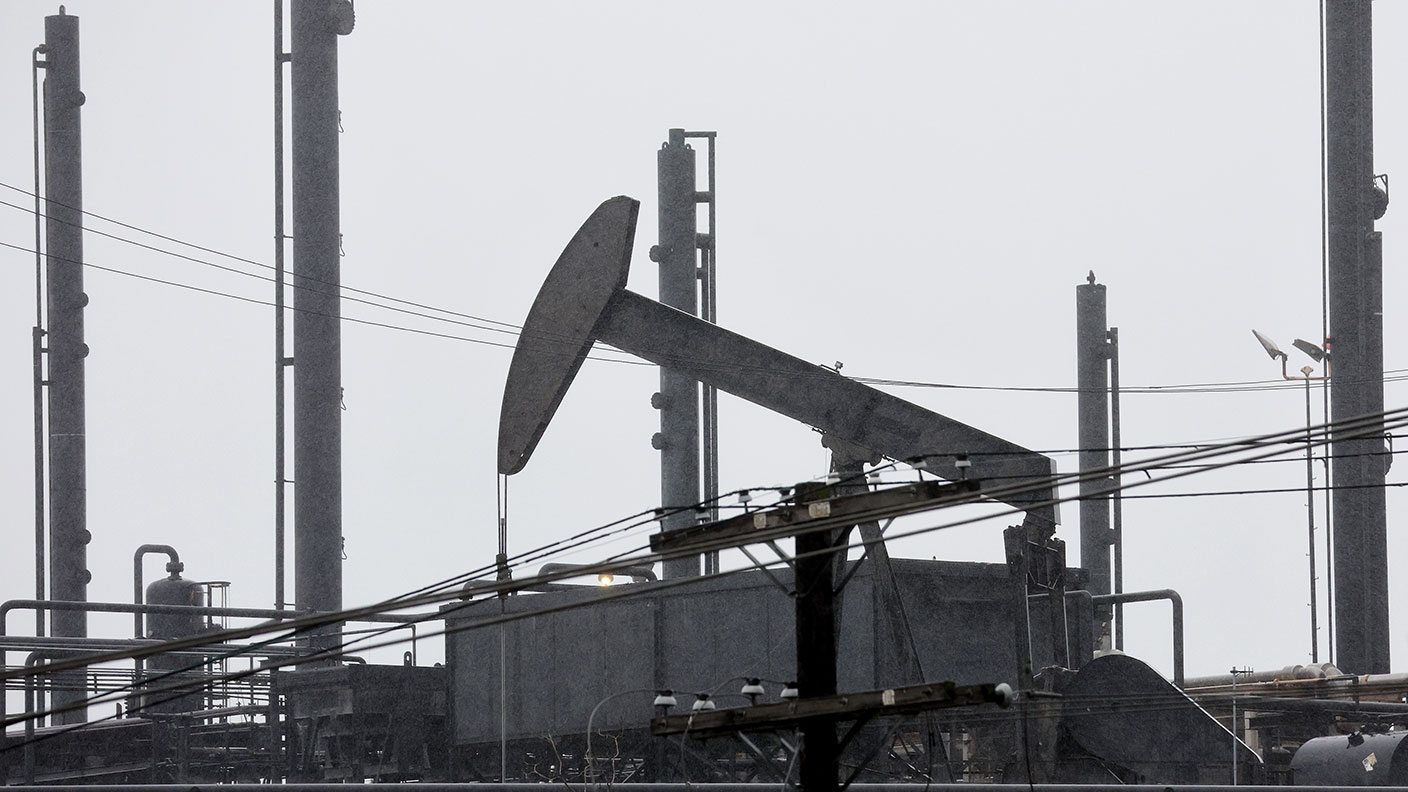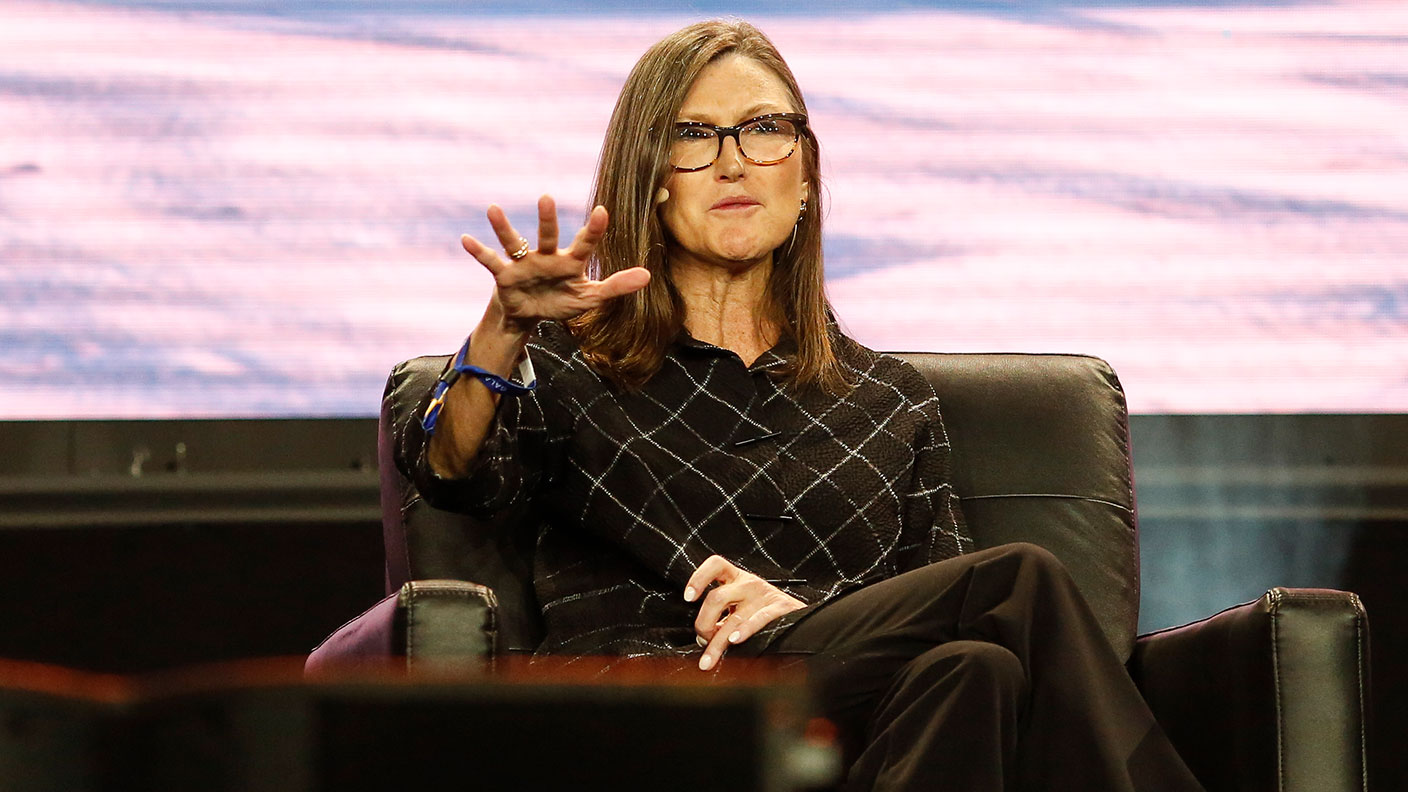How the fear of death affects our investment processes
Many of our investment decisions are driven by one simple fact: the knowledge that, one day, we will be dead. Here, in an extract from his new book, John Stepek explains why.

Get the latest financial news, insights and expert analysis from our award-winning MoneyWeek team, to help you understand what really matters when it comes to your finances.
You are now subscribed
Your newsletter sign-up was successful
Want to add more newsletters?

Twice daily
MoneyWeek
Get the latest financial news, insights and expert analysis from our award-winning MoneyWeek team, to help you understand what really matters when it comes to your finances.

Four times a week
Look After My Bills
Sign up to our free money-saving newsletter, filled with the latest news and expert advice to help you find the best tips and deals for managing your bills. Start saving today!

This year, I published my first book. It's called The Sceptical Investor, and it's about contrarian investing or, as I've slightly cheekily rebranded it, sceptical investing.
My publisher, Harriman House, is offering a cracking deal on the book right now. You can get 40% off by ordering it here, and entering the code SCEPTIC40 at the check-out.
If you're not convinced by that fantastic value investment, let me share an extract with you in today's Money Morning it's from Chapter 5, entitled "You vs the crowd".
MoneyWeek
Subscribe to MoneyWeek today and get your first six magazine issues absolutely FREE

Sign up to Money Morning
Don't miss the latest investment and personal finances news, market analysis, plus money-saving tips with our free twice-daily newsletter
Don't miss the latest investment and personal finances news, market analysis, plus money-saving tips with our free twice-daily newsletter
A simple way to think about human thinking
As with any complex system, you can't model the human mind perfectly. We're a morass of conflicting, shifting desires affected by changes in both our internal environment (our own biochemistry) and our interactions with our external environment (other people, the weather, what's on the telly).
But we don't need to go into complicated models of individual minds to get a good idea of how crowds work. There are just two key impulses to wrap your head around.
They're commonly described as greed' and fear'. But I'm not so keen on those labels both have very negative connotations. I prefer to say we have an expansionary impulse and a contractionary one.
When you are in an expansionary mood, your focus is on growing your wealth, grabbing a bigger piece of the cake, empire-building. When you are in contractionary mode, you want to hunker down, build walls, protect what is yours.
These two impulses are in turn driven by one simple fact: the knowledge that, one day, you will be dead.
We don't crave happiness we crave security
When evolutionary psychologists and behavioural economists talk about what drives our herding instincts, they often hark back to the days when we were dwelling in Stone Age tribes out on the African savannah, at constant risk of being picked off by lions, dying of dehydration, or nibbling on some poisonous vegetation.
The idea is that we are programmed to run with the crowd because it's safer. But there's more to it than a simple evolutionary hangover. You really don't have to go back to the Stone Age to find unforgiving death lurking around every corner.
Vaccines and antibiotics only became widely available to most people (in developed countries at that) in the middle of the last century.
In 1924, four years before the discovery of penicillin, the 16-year-old son of one of the most powerful men in the world US president Calvin Coolidge died of septicaemia that resulted from a blister that developed on his toe while he was playing tennis in ill-fitting shoes.
Even today, and even in the most advanced societies, life is unpredictable and full of potentially lethal threats. And while all animals have a fight or flight' instinct when faced with life- threatening situations, only humans (as far as we can tell) have a sufficiently evolved brain to bless us with an ever-present awareness of the inevitability of our own extinction.
This fear may not always be at the forefront of our minds, but it's never far away.
What does any fundamentally rational being crave in such an environment? It's not happiness or contentment (although these may be desirable side effects).
It's security and certainty.
I want to keep myself and my loved ones safe, and I also want to know that after I am gone, the things that I value will persist (it doesn't matter that I'll be gone at that point what matters is how I feel about that now, while I'm alive).
To do that, I need to be able to do two things. I need to get out there and explore and master my environment in order to take advantage of opportunities that could make my life better and my situation more secure (the expansionary impulse).
But I also need to be highly alert to danger and ready to raise my defences in response to threats to that security (the contractionary impulse).
Building and defending our models of the world
So how do we navigate an uncertain world? How do we impose order on the chaos around us? It's simple. We look for elements that appear to be predictable we seek patterns.
We look for cause-and-effect rules that govern outcomes and can be used to influence them. If we know (or at least think we know) that x' causes y', then we can increase our level of certainty in our world view.
Some rules are governed by natural phenomenon don't fall off cliffs; don't eat poisonous mushrooms. Some are instinctive (social animals such as humans and apes have been found to have an inherent sense of fairness', even though the world itself is clearly not naturally fair').
But many of the most important ones are social (such as learning the conventions for crossing a road or transacting with one another).
And the critical point is that we don't formulate these worldviews alone. They are passed down from our parents, and reinforced by our schools, friends, co-religionists and colleagues.
In fact, historian Yuval Noah Harari, in his recent bestseller Sapiens, argues that this ability to create and believe in epic, society-spanning shared world views from religions to legal systems to money itself (which ultimately derives its value from our belief in it, and the social structures that give everyone the confidence to rely upon it) is key to our spectacular success as a species.
You can call them stories, as Harari does, or you can call them social structures, or you can think of them as rules for a particularly complicated board game.
But however you describe them, they are all systems that human beings have invented to enable us to cooperate in a more mutually bene cial way and our brains are wired to be receptive to information presented like this.
Which unfortunately, can be a real handicap in the world of investment.
Buy the book now at a massive discount
Enjoyed this sample? Get the book for 40% off just enter SCEPTIC40 at the checkout.
Get the latest financial news, insights and expert analysis from our award-winning MoneyWeek team, to help you understand what really matters when it comes to your finances.

-
 How a ‘great view’ from your home can boost its value by 35%
How a ‘great view’ from your home can boost its value by 35%A house that comes with a picturesque backdrop could add tens of thousands of pounds to its asking price – but how does each region compare?
-
 What is a care fees annuity and how much does it cost?
What is a care fees annuity and how much does it cost?How we will be cared for in our later years – and how much we are willing to pay for it – are conversations best had as early as possible. One option to cover the cost is a care fees annuity. We look at the pros and cons.
-
 Are UK house prices set to fall? It’s not so simple
Are UK house prices set to fall? It’s not so simpleAnalysis Figures suggest UK house prices are starting to slide, but we shouldn’t take these numbers at face value, explains Rupert Hargreaves.
-
 Tesco looks well-placed to ride out the cost of living crisis – investors take note
Tesco looks well-placed to ride out the cost of living crisis – investors take noteAnalysis Surging inflation is bad news for retailers. But supermarket giant Tesco looks better placed to cope than most, says Rupert Hargreaves.
-
 It may not look like it, but the UK housing market is cooling off
It may not look like it, but the UK housing market is cooling offAnalysis Recent house price statistics show UK house prices rising. But John Stepek explains why the market is in fact slowing down and what this means for you.
-
 Think the oil price is high now? You ain’t seen nothing yet
Think the oil price is high now? You ain’t seen nothing yetAnalysis The oil price has been on a tear in recent months. Dominic Frisby explains why oil in fact is still very cheap relative to other assets.
-
 What can markets tell us about the economy and geopolitics?
What can markets tell us about the economy and geopolitics?Sponsored Markets have remained resilient despite Russia's war with Ukraine. Max King rounds up how reliable the stockmarket is in predicting economic outlooks.
-
 The tech bubble has burst – but I still want a Peloton
The tech bubble has burst – but I still want a PelotonAnalysis Peloton was one of the big winners from the Covid tech boom. But it's fallen over 90% as the tech stock bubble bursts and and everything else falls in tandem. Here, Dominic Frisby explains where to hide as markets crash.
-
 The market is adjusting to a new “short dreams, long reality” world
The market is adjusting to a new “short dreams, long reality” worldAnalysis As interest rates rise, things are starting to change, says John Stepek. Reality is biting back. Gone are the fanciful ideas built on hope – a business now needs a solid foundation.
-
 Are UK house prices heading for a fall?
Are UK house prices heading for a fall?Analysis UK house-price growth is slowing as interest rates rise. But interest rates aren’t all that matters for house prices, says John Stepek.